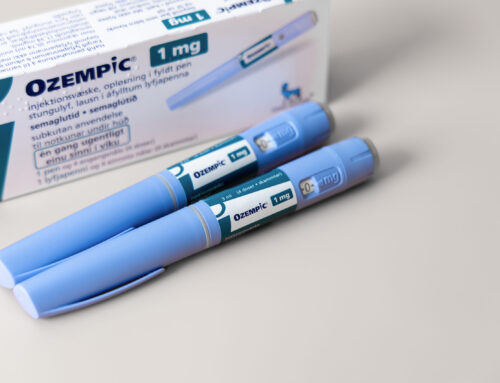What Does the Liver Do with Drugs and Alcohol?
Most people know that the liver is one of the major organs in the body. Most people are unaware of the complete role it plays and how drug and alcohol addiction can damage it. Think of your liver as a filter. One of your liver’s most important jobs is to “clean” your blood. It does this by removing toxins, which would otherwise kill you eventually. Knowing that, it’s easy to see why liver health is so important.
Without a healthy liver, toxins like the metabolites of drugs and alcohol and things like ammonia, which your body makes as you digest protein would stay in your blood. The liver processes and filters your blood. In short, the liver clears out drugs like alcohol, heroin or methamphetamines and their metabolites (what they leave behind.) This keeps these toxins from doing more damage than they would otherwise.
How Do Drugs and Alcohol Hurt the Liver?
A healthy liver can do a great job of filtering out toxins, but it’s a hard job. We don’t make things any easier on our livers when we eat a diet high in fat and animal protein. But alcohol and drugs can do even more liver damage than a poor diet.
If you’re young and healthy, your liver may be able to recover partially from things like early fatty liver disease. But the more serious types of liver damage from addiction, like cirrhosis are permanent unfortunately. Someone with cirrhosis of the liver will never again regain function to the parts of their liver which have become scar tissue.
How drug and alcohol abuse damages your liver:
Fatty Liver (Hepatic Steatosis):
When you drink alcohol, your liver works to break it down. Alcohol abuse gets in the way of your liver breaking the fat in your diet down. That causes the fat to build up in your liver. This condition is known as fatty liver and is common in heavy drinkers, but you don’t have to be an alcoholic at all to get fatty liver. People who abuse other drugs also get this condition.
Alcoholic or Drug-Induced Hepatitis:
Continued heavy drinking can cause inflammation and damage to liver cells, leading to alcoholic hepatitis. Symptoms may include fever, jaundice (yellowing of the skin and eyes), and abdominal pain. But, again you don’t need to abuse alcohol to get this type of hepatitis. It is also seen in people with opioid use disorders and other addictions.
Cirrhosis:
Over time, chronic alcohol and drug abuse can lead to cirrhosis. Cirrhosis is a condition where normal, healthy liver tissue is replaced by scar tissue. The scar tissue is inert. That means it can’t do the jobs the liver is supposed to perform, in fact it gets in the way. Cirrhosis is irreversible and incurable (short of a liver transplant). It can, and often does, lead to liver failure.
Drug-Induced Liver Injury (DILI):
Many recreational drugs, including both prescription and illegal drugs, can cause liver damage. The liver metabolizes these substances, and in the process, toxic byproducts can form, leading to liver injury. Drugs that can cause drug-induced liver injury run the gamut from oxycodone, fentanyl and heroin to Xanax and even Adderall. Abusing any drug, prescription or otherwise comes with serious risks.
Acute Liver Failure:
Some drugs can cause severe liver damage, leading to acute liver failure, especially when abused. This is the most serious and immediate type of liver condition on this list as it can be fatal in a short amount of time. It requires immediate medical attention. Some drugs known to have caused acute liver failure include: heroin, meth, kava, ephedra, acetaminophen (Tylenol) and drugs that contain acetaminophen, like oxycodone (Percocet) and hydrocodone (Vicodin). ]
Symptoms of Liver Damage from Drugs and Alcohol
The symptoms of liver damage tend to be the same, regardless of what caused them. As explained above, the liver performs some very important jobs for the body. When it isn’t working right, toxins begin to build up in the blood. Eventually that elevated level of toxins affects the way your body feels and even how your brain works. The brain gets a lot of blood flow, it is very sensitive to changes in your blood, especially a build up of poisonous toxins.
Early Signs of Liver Damage from Addiction:
- Fatigue: Feeling unusually tired or exhausted
- Nausea and Vomiting: Persistent nausea or vomiting.
- Upper Right Abdominal Pain: Discomfort or pain in the upper right side of the abdomen.
- Jaundice: Yellowing of the skin and eyes.
- Loss of Appetite: Decreased desire to eat.
- Unintentional Weight Loss: Losing weight without trying.
- Dark Urine: Urine that is darker than usual.
- Pale Stools: Stools that are lighter in color, almost clay-like.
Advanced Signs of Liver Damage
- Swelling in the Abdomen: Fluid buildup in the abdomen (ascites).
- Severe Jaundice: Intense yellowing of the skin and eyes.
- Easy Bruising and Bleeding: Increased tendency to bruise or bleed.
- Confusion and Cognitive Issues: Difficulty thinking clearly (hepatic encephalopathy).
- Severe Fatigue: Extreme tiredness and weakness.
- Spider Angiomas: Small, spider-like blood vessels visible on the skin.
Addiction and the Liver
Substance abuse is very hard on the liver. People who are caught up in a cycle of addiction are usually less concerned about their overall health in other ways too. Whether you’re addicted to alcohol, pain pills or Adderall, if you’re also eating a poor diet, that will compound the damage that drugs and alcohol are already doing to your liver.
A high fat diet full of animal protein or lots of processed foods and simply carbohydrates isn’t unusual for a person who is more focused on obtaining their drug of choice than staying healthy. If you or the person who love, who is addicted, are living on fast food and snacks from the convenience store and drinking more soda and energy drinks than water, then your liver is getting hammered with toxins left and right.
Here are some more detailed descriptions of other signs your liver might be working too hard.
Specific Signs Your Liver May Be Struggling with Addiction
Body Odor and Excessive Sweating
Typically the body will get rid of toxins any way it can. Normally, it would do so through regular waste disposal, sending the toxins out with the stool or urine.
In cases where the liver is not functioning properly and cannot process these toxins efficiently, the body tries to expel them in some other way, and sweat is one such way.
Sticky, smelly, and excessive sweat means there are fatty compounds and other toxins being expelled through the skin and brought out through sweating. Excessive sweating could point out that there are a lot of toxins to process and expel, and the liver is not up to it.
Nausea After Eating
The body has quite a number of sensors that indicate if something is wrong. Should the liver not be performing well enough to be healthy, signs are sure to pop up that are difficult to ignore.
One such sign is nausea or even the urge to vomit after eating, particularly if the meal is fatty or oily. This is actually one of the most compelling reasons why people ask, “how long does it take to detox your liver” as not being able to eat properly is nothing short of agonizing for many.
This is actually the body trying to prevent the person from further endangering the liver, which could already be functioning poorly. The nausea is to try to prevent the person from ingesting food that could make them much worse, as fatty and oily foods need to be processed more than others.
Acne, Allergies, and Breakouts
As the body will try to get rid of toxins any way it could if the liver is not performing well, another alternate route for disposal could be pimples and breakouts. The toxins could also be mixed with the pus that comes out when it erupts, and these usually manifest in large, painful pimples.
Allergies are also a common manifestation, particularly those that have an external sign. Allergies are common visual signals that the body is dealing with something or that it needs help in some way to deal with something internally, as the symptoms are quite hard to ignore.
Dark-colored Urine and Discolored Skin
Medical experts monitoring for something wrong would tell the patient to watch out for any color variations in their urine. This is because, much like the signs of allergies, the color of a person’s urine could point to something seriously wrong going on inside, particularly with the liver.
Sometimes dark or discolored urine could be accompanied by a sudden discoloration of the person’s skin as well, particularly if jaundice is setting in. Jaundice is usually the result of liver cells performing poorly, which leads to the build-up of bilirubin, a compound that is present when the liver processes toxins.
What is a Dysfunctional Liver?
All the symptoms mentioned above are warnings that a person’s liver is either performing poorly or is on the way to completely failing. Liver failure is a condition that is certain to lead to death, as with any failure of any major organ in the body. Death is a certainty because the liver will no longer be able to do what it does to keep the body running, including:
Should the body experience any disruption of the processes mentioned above, all the other bodily processes will also be affected. Liver disease is already at an alarming rate, as in the US alone, at least 30 million people have one form of liver disease or another, ranging from symptoms that could be treated with continuous medication and a lifestyle change to conditions that need a liver transplant.
Can You Detox Your Liver at Home?
Detoxing the liver is ironic, considering the liver’s job is detoxing the body. In many cases, however, it becomes necessary. This is particularly true for people who either have a liver disease they came by due to an illness, such as hepatitis, or if they have an unhealthy lifestyle, made worse by substance abuse.
The first step to helping your liver with a detox you do yourself is to know how NOT to make things worse. Many think because there are do-it-yourself detox procedures that could be done at home, they can go on and continue making things difficult for their liver. No amount of medication or DIY detox could help your liver if you do nothing to ease the stress that it is going through already.
Conquer Addiction and Become Your Best Self
At Achieve Wellness and Recovery, we believe everyone deserves a fighting chance to beat their addiction and become the person they were meant to be. That’s why we do much more than simply help people get clean and sober here.
Successful recovery is about more than just putting down drugs and alcohol. It’s about picking up new habits and new ways of thinking. The secret to long-term recovery from addiction is about what you start doing, not what you stop doing.
If you, or the person you love, are willing to reach for a new and better life, our hand is here. We are ready to help you leave addiction in your rearview mirror for good. Remember, you have to make the first move and contact us before the change begins.
We work with most insurance companies. Please note we are not affiliated with or endorsed by insurance companies.
No Medicaid Accepted.

Medically Reviewed By
Nicole Rettino-Lambert LCSW, LCADC, CCS, CCTP, CSTIP
Nicole Rettino-Lambert is a dually licensed clinician with over 20 years of experience working with children, adolescents, and adults in both addiction treatment and mental health treatment. Along with extensive experience in clinical work, she has held leadership roles in both inpatient and outpatient addiction treatments centers in New Jersey. Throughout her various leadership positions, Rettino-Lambert has developed clinical programming, assisted staff in their growth and development in the clinical field, and had the privilege of helping numerous individuals on their path to recovery.
As a clinician, Rettino-Lambert specializes in addiction trauma, mental health, self-harm behaviors, anxiety, intimacy issues, sex addiction, and personality disorders. She holds certifications as a clinical trauma professional and sex informed professional. Her passion and purpose as a clinician are to help individuals find their voice, purpose, and motivation through their recovery. She takes pride in being part of the process that helps those who are fighting for their lives to achieve both sobriety and wellness.In her role as a Clinical Director at Achieve Wellness and Recovery, Rettino-Lambert works tirelessly to ensure that her staff feels supported in their roles, continues their clinical growth and development, and is empowered to become the best versions of themselves. She firmly believes that all the staff are an essential part of clients’ recovery journey and that they deserve continuous compassion, empathy, acknowledgment, and support from leadership.





















